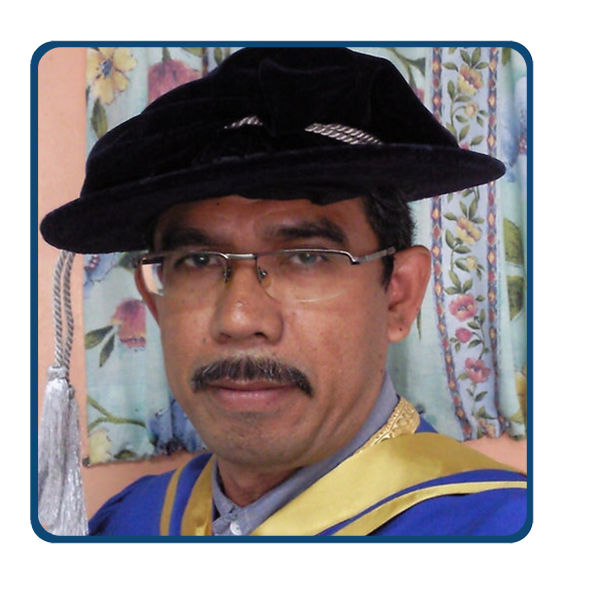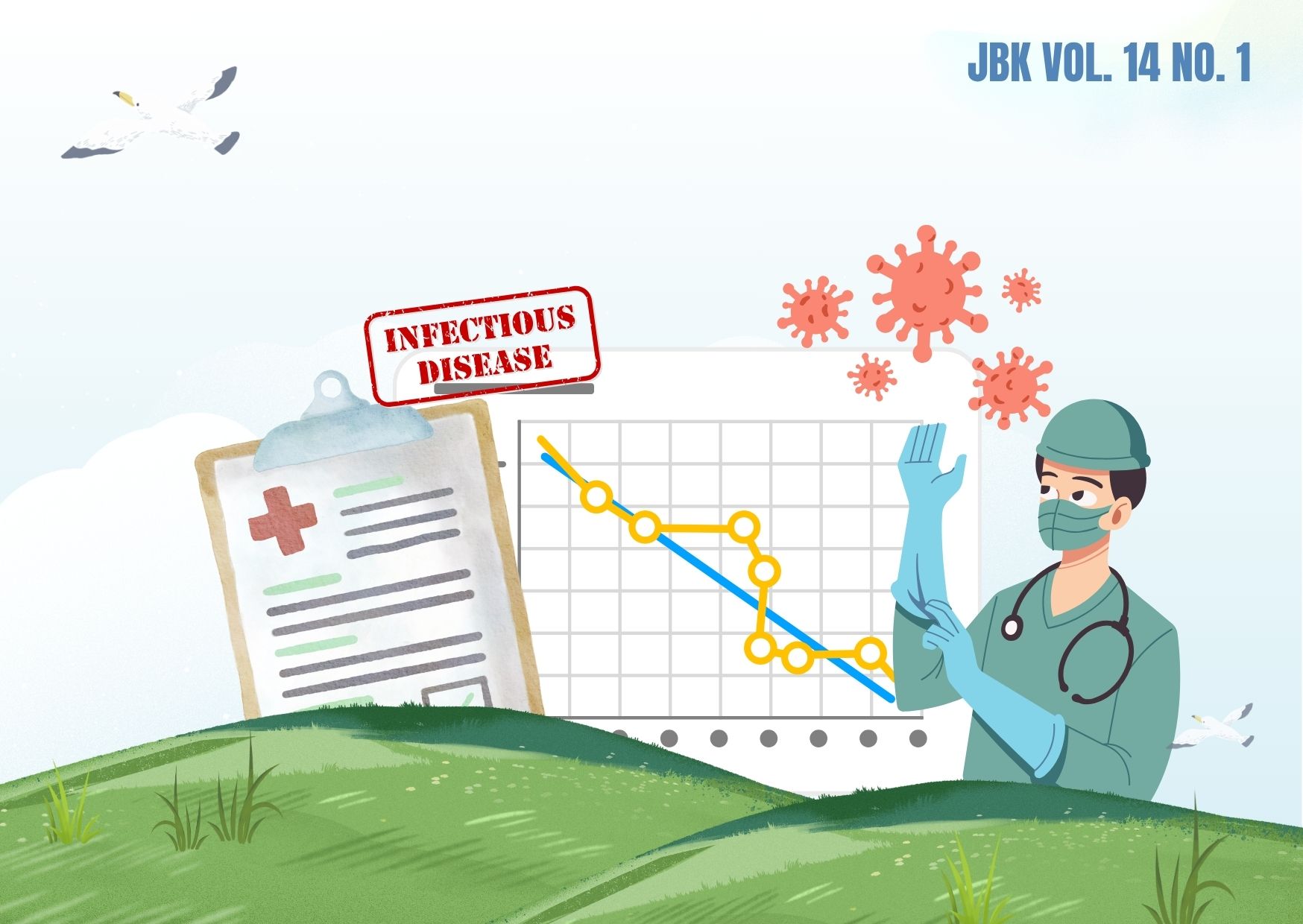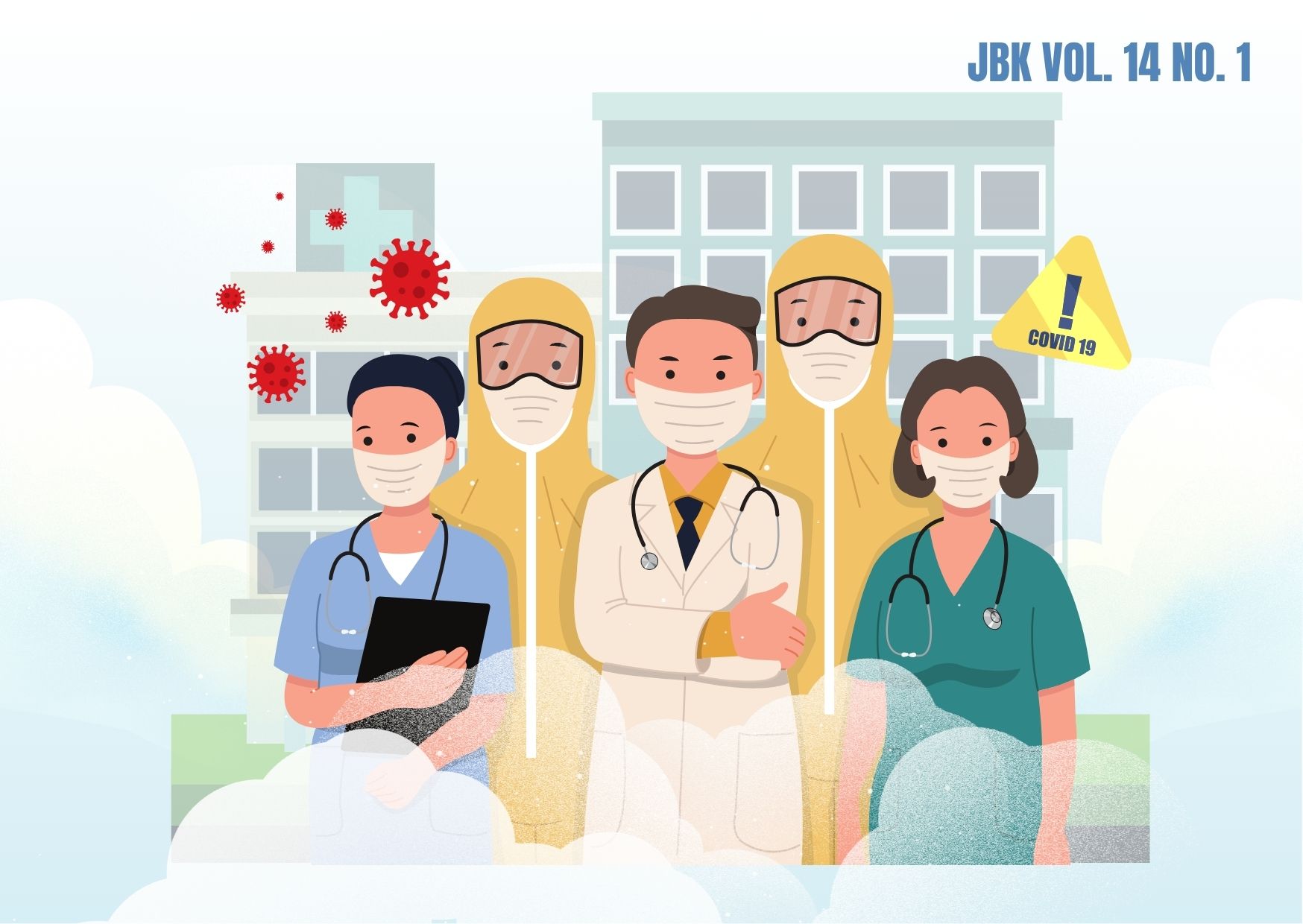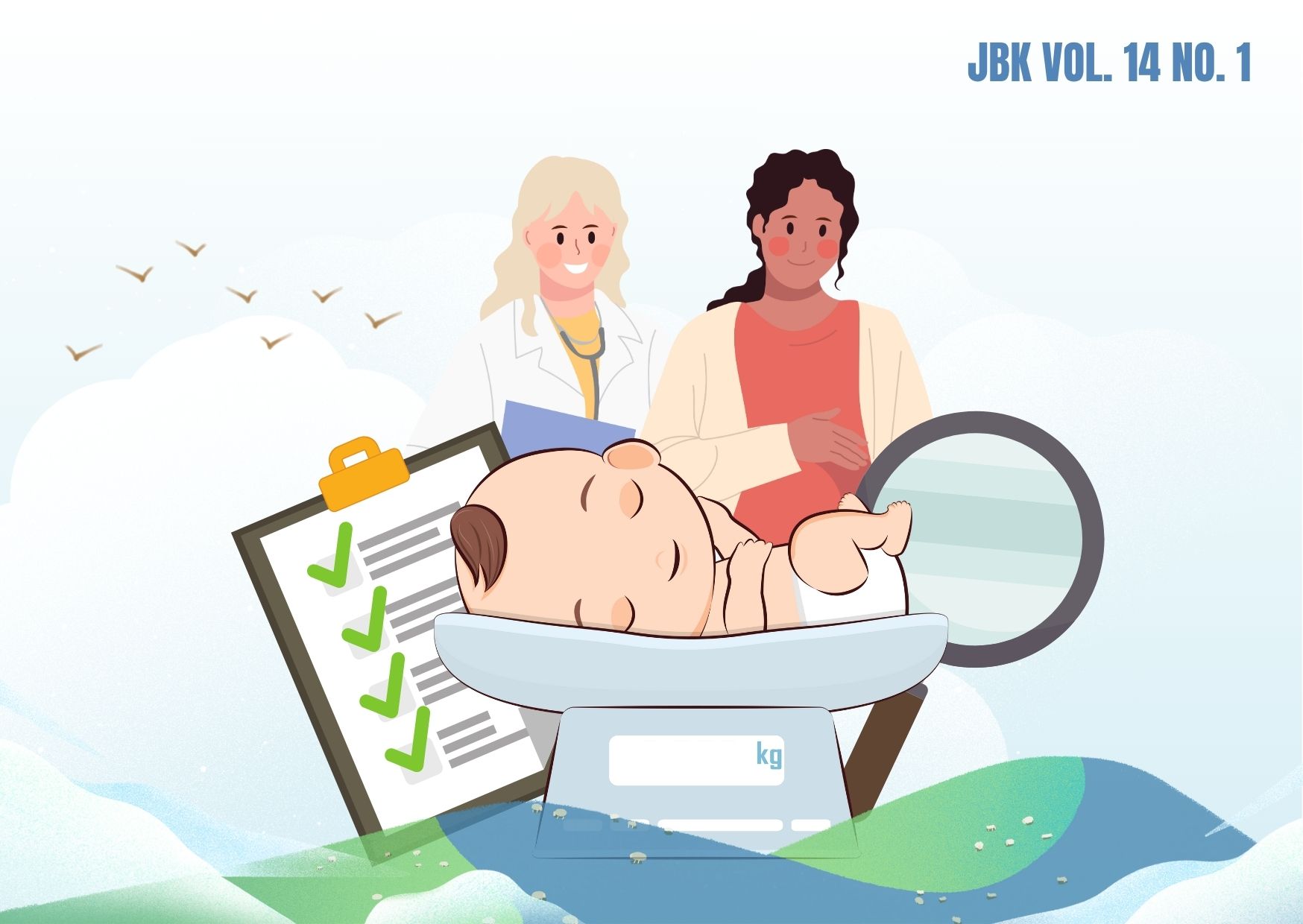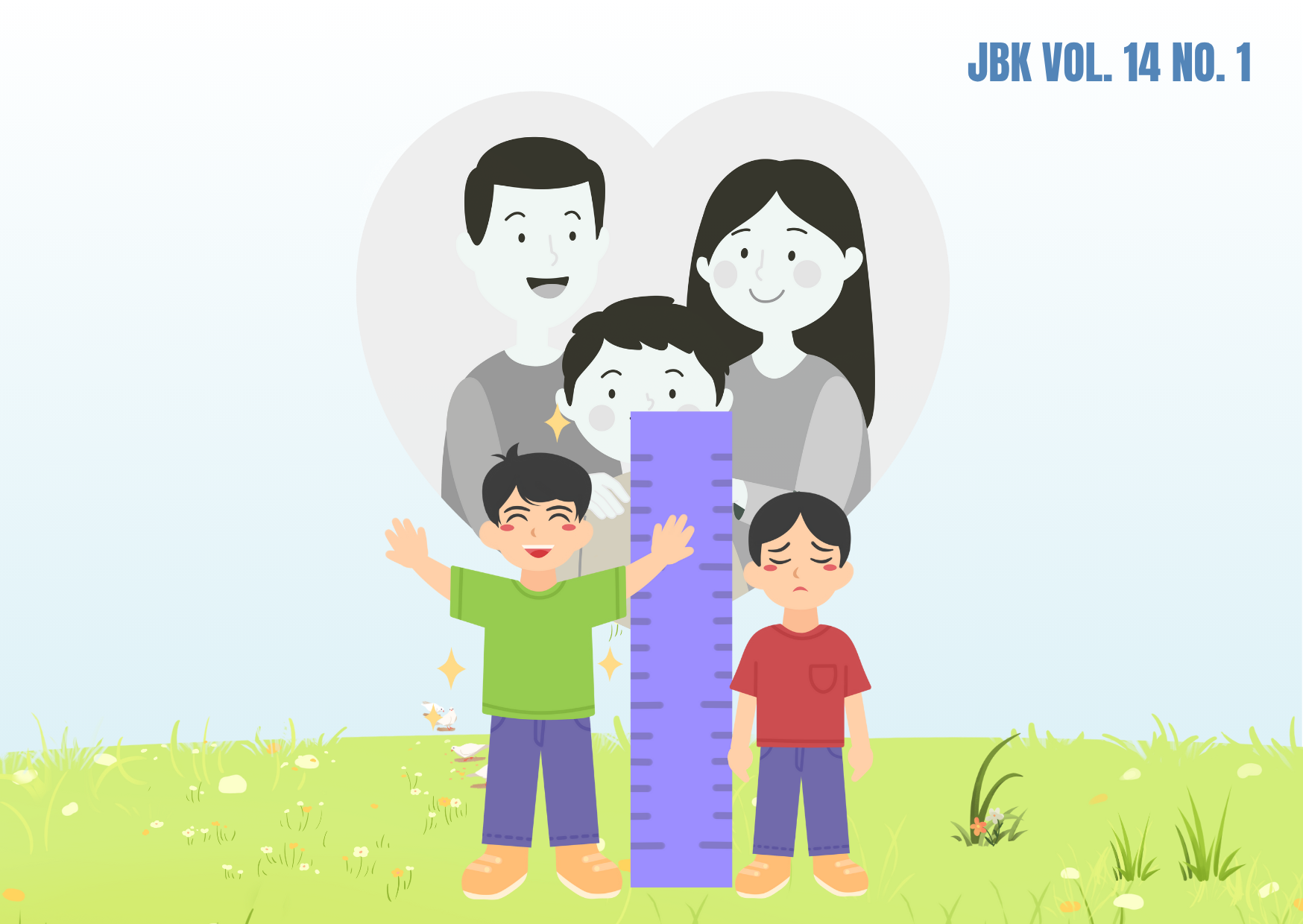PERSONAL HYGIENE AND REPRODUCTIVE HEALTH KNOWLEDGE AMONG ADOLESCENTS AT KAMPUNG BELAJAR, SURABAYA
Downloads
Health knowledge is fundamental for everyone, including children. This knowledge provides understanding for children in preparation for entering puberty. However, health education which discusses personal hygiene, anemia, puberty, and healthy relationships, as well as reproductive health is still very limited in formal schools. Because of these limitations, children need to get informal education. One of the ways this is done is through health education activities at Kampung Belajar. The research objective was to analyze health knowledge on personal hygiene, anemia, puberty, healthy relationships, and reproductive health taught through health education at Kampung Belajar in Jambangan, Surabaya. This study used secondary data sources obtained from the teaching team at the learning village. The data obtained were the result of evaluating learning activities related to health knowledge. The research subjects were 22 students from grade 1 to 7. The results of this study were 0.031 with p < 0.05. It can be concluded that there was a difference in health knowledge, which included personal hygiene, anemia, puberty, healthy relationships, and reproductive health in the study group after receiving health education provided by the teaching team at Kampung Belajar.
Astri, L.A., Winarni, S. and Dharmawan, Y., 2016. Pengaruh Pemberian Pendidikan Kesehatan Reproduksi terhadap Tingkat Pengetahuan Remaja Awal Sekolah Dasar di Daerah Wisata Bandungan, Kabupaten Semarang Tahun 2016. Jurnal Kesehatan Masyarakat (e-Journal), 4(4), pp.213–219.
Bahri, N.A.H., 2018. Pengaruh Penyuluhan Kesehatan Reproduksi dengan Metode Diskusi Kelompok terhadap Pengetahuan dan Sikap Menstrual Hygiene Siswi SD Negeri Wilayah Kecamatan Jabung. Universitas Brawijaya.
Budiono, A.M. and Sulistyowati, M., 2013. Peran UKS (Usaha Kesehatan Sekolah) dalam Penyampaian Informasi Kesehatan Reproduksi Terhadap Siswa SMP Negeri X di Surabaya. Promkes Unair, 1(2), pp.184–191.
Efendi, F. and Makhfudli, 2009. Keperawatan Kesehatan Komunitas Teori dan Praktik dalam Keperawatan. 1st ed. [online] Jakarta: Salemba Medika. Available at: <https://books.google.co.id/>.
Fatmawati, T.Y., 2018. Pengetahuan Tentang Personal Hygiene pada Anak Usia Sekolah di SDN 206 / IV Kota Jambi. Jurnal Akademika Baiturrahim, 7(1), pp.10–16.
Husain, H. and Sabur, F., 2020. Pengaruh Pendidikan Kesehatan Terhadap Peningkatan Pengetahuan dan Sikap Siswi SD Kelas 4 dan 5 Tentang Perubahan Fisik Menjelang Masa Pubertas di SD Inpres Sambung Jawa 3 Makassar. Media Kebidanan, 1(1), pp.9–14.
Kericho, J. and Rebecca, K., 2016. The Implementation of Hygiene Practices in Early Childhood Education Centers in Londiani Sub-County, Kericho County. International Journal of Education and Development, 4(9), pp.46–52.
Limbong, M., 2018. Pengaruh Pendidikan Kesehatan Tentang Personal Hygiene terhadap Pengetahuan dan Sikap Siswa. Excellent Midwifery Journal, 1(1), pp.39–45.
Malinda, N.T., Damajanti, M.N. and Muljosumarto, C., 2017. Perancangan Buku Interaktif Tentang Menstruasi Pertama Untuk Anak Perempuan Usia 9-12 Tahun. Jurnal DKV Adiwarna, 1(10), pp.1–9.
Maryuni and Anggraeni, L., 2017. Faktor yang Berhubungan dengan Tingkat Pengetahuan Orang Tua Tentang Pendidikan Seks Secara Dini pada Anak Sekolah Dasar (SD). Jurnal Ners dan Kebidanan Indonesia, 4(3), pp.135–140.
Ningsih, E.S.B. and Hennyati, S., 2018. Kekerasan Seksual Pada Anak di Kabupaten Karawang. Jurnal Bidan "Midwife Journal”, 4(02), pp.56–65.
Nugraheni, S.A., Wahyuningsih, S.E., Prihatini, I.J. and Sulistyowati, E., 2018. Knowledge and Attitudes About Reproductive Health (Preliminary Study on Elementary School in Brebes District, Central Java, Indonesia). International Journal of Community Medicine and Public Health, 5(4), pp.1298–1303.
Nurbaya, Jafar, N. and Asrina, A., 2019. Gambaran Pengetahuan Tentang Pencegahan Kekerasan Seksual Pada Anak Remaja Awal di SD Islam Terpadu Nurul Fikri Makassar. In: Sinergitas Multidisiplin Ilmu Pengetahuan dan Teknologi. Makassar: Yayasan Pendidikan dan Research Indonesia.pp.65–71.
Panjaitan, A.A., Angelia, S. and Apriani, N., 2018. Respon Remaja Putri dalam Menghadapi Perubahan Fisik Saat Pubertas. Berkala Kesehatan, 4(2), pp.55–60.
Panjaitan, R.L., Djuanda, D. and Hanifah, N., 2015. Persepsi Guru Mengenai Sex Education di Sekolah Dasar Kelas VI. Mimbar Sekolah Dasar, 2(2), pp.224–233.
RaÅ¡ková, M. and Stolinská, D.P., 2018. Knowledge About Puberty Among Primary School Children in the Czech Republic. In: D.P. Stolinská, ed. International Conference of Education, Research and Innovation (ICERI) 2018 Proceedings. Seville, Spain: International Conference of Education, Research and Innovation.pp.7790–7796.
Saraswatia, G.K., Zulpahiyana and Arifah,S., 2015. Faktor-Faktor yang Mempengaruhi Konsep Diri Remaja di SMPN 13 Yogyakarta. Jurnal Ners dan Kebidanan Indonesia, 3(1), pp.33–38.
Sari, I.P.T.P., 2013. Pendidikan Kesehatan Sekolah Sebagai Proses Perubahan Perilaku Siswa. Jurnal Pendidikan Jasmani Indonesia, 9(2), pp.141–147.
Suci, N.W. and Purwidiani, N., 2020. Pengembangan Media Pembelajaran Pop Up Book pada Materi Pencegahan Anemia untuk Siswa SD. Jurnal Tata Boga, 9(1), pp.576–583.
Sulistyowati, A.M., Rahfiludin, M.Z. and Kartini, A., 2019. Pengaruh Penyuluhan dan Media Poster Tentang Anemia Terhadap Tingkat Pengetahuan dan Sikap pada Santriwati (Studi di Pondok Pesantren Al-Bisyri Kota Semarang). Jurnal Kesehatan Masyarakat (e-Journal), 7(4), pp.700–707.
Utomo, I.D., McDonald, P., Hull, T., Reimondos, A. and Utomo, A., 2011. Policy Brief No. 3 Hasil Positif Pendidikan Kesehatan Reproduksi, HIV dan AIDS di Sekolah Dasar dan Menengah: Bukti dari Jakarta, Jawa Barat, Nusa Tenggara Barat, dan Sulawesi Selatan. 3. [online] Australian Demographic and Social Research Institute. Available at: <https://kebijakankesehatanindonesia.net/> [Accessed 10 Aug. 2020].
World Health Organization, 2012. Health Education: Theoretical Concepts, Effective Strategies and Core Competencies. [online] Health Promotion Practice, Eastern Mediterranean: World Health Organization. Available at: <https://applications.emro.who.int/>.
Zakiyah, R., Prabandari, Y.S. and Triratnawati, A., 2016. Tabu , Hambatan Budaya Pendidikan Seksualitas Dini Pada Anak di Kota Dumai. BKM Journal of Community Medicine and Public Health, 32(9), pp.323–330.
Copyright©2022 Jurnal Biometrika dan Kependudukan (Journal of Biometrics and Population)
This work is licensed under a Creative Commons Attribution-NonCommercial-ShareAlike 4.0 International License.
1. Copyright of all journal manuscripts is held by the Jurnal Biometrika dan Kependudukan.
2. Formal legal provisions to access digital articles of the electronic journals are subject to the provision of the Creative Commons Attribution-ShareAlike license (CC BY-NC-SA), which means that Jurnal Kesehatan Biometrika dan Kependudukan to keep, transfer media/format, manage in the form of databases, maintain, and publish articles.
3. Published manuscripts both printed and electronic are open access for educational, research, and library purposes. Additionally, the editorial board is not responsible for any violations of copyright law.






